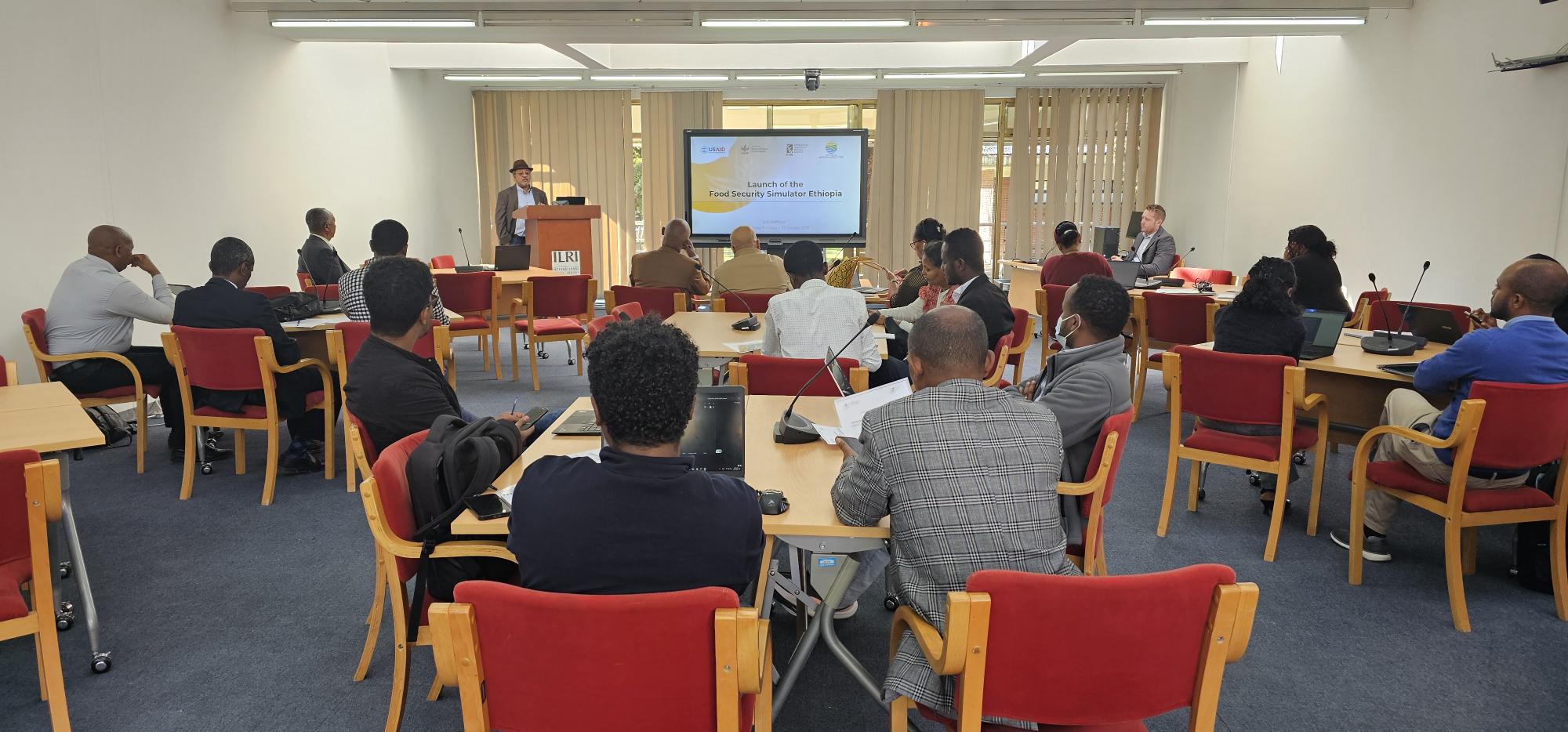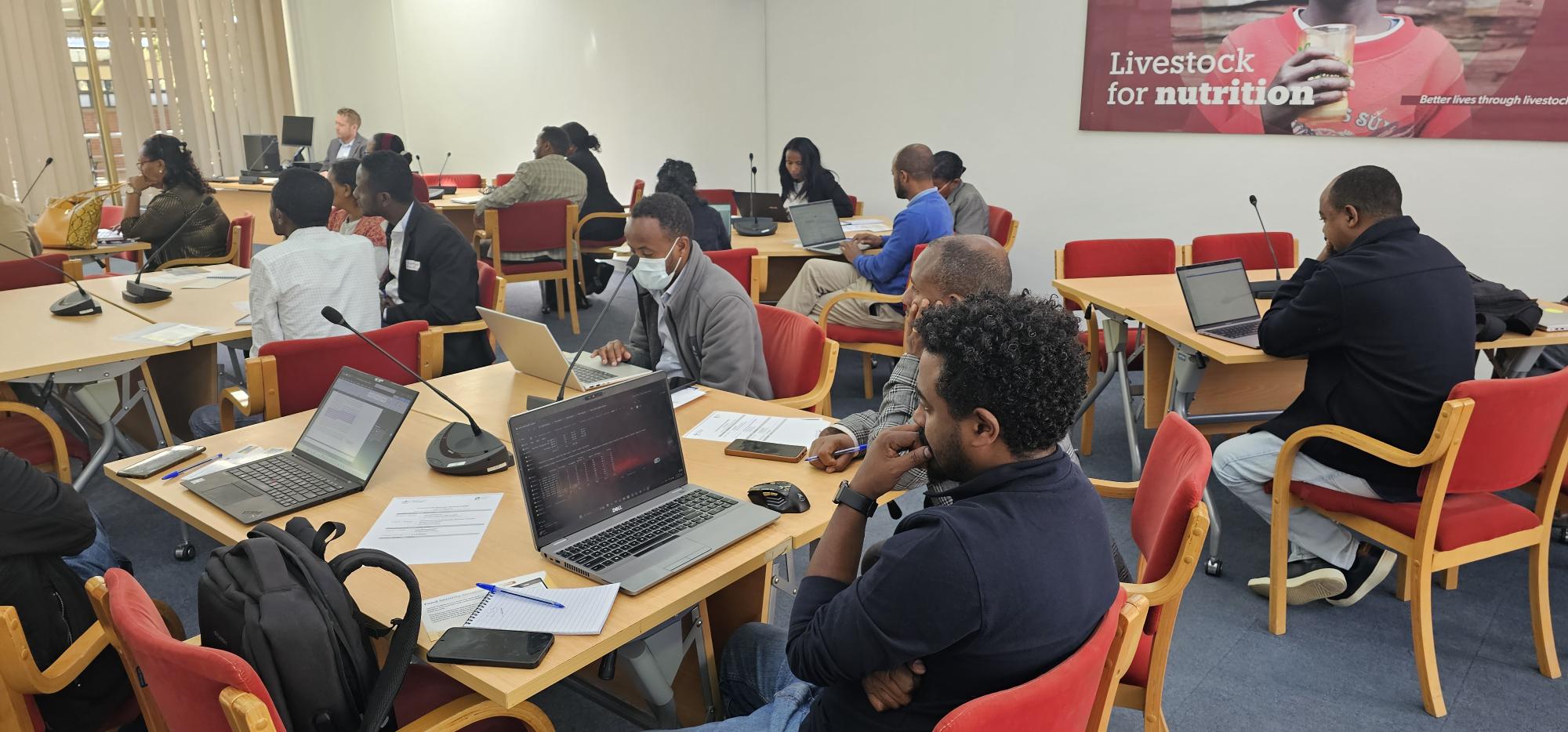On January 22, 2025, the Food Security Simulator Ethiopia (FSSE) was officially launched at the International Livestock Research Institute (ILRI) Campus in Addis Ababa. The event commenced with an opening remark by Alemayehu Seyoum Taffesse (DPhil), a Senior Research Fellow and Program Leader of the International Food Policy Research Institute (IFPRI) - Ethiopia Office. This was followed by a speech from Dr. Getachew Diriba, Senior Advisor and Principal Coordinator, Ethiopian Food Systems Transformation, Office of the Minister, Minister of Agriculture, who highlighted the significance of FSSE in addressing Ethiopia’s food security challenges.

Andrew Comstock, a Senior Research Analyst at IFPRI’s Washington, D.C. office, introduced the tool and conducted a live demonstration. The session provided a detailed walkthrough of FSSE’s functionality, showcasing its ability to simulate the short-term impacts of food price and household income shocks on food security. Attendees engaged actively, raising important and relevant questions about the tool's applications and capabilities. The interactive nature of the meeting underscored the participants’ keen interest in leveraging FSSE for policymaking and research.
FSSE is an innovative, user-friendly tool built on Microsoft Excel, designed to evaluate how changes in food prices or household income can impact food consumption, diet quality, and other food security indicators. It integrates data from the Ethiopia Socioeconomic Survey 2018-2019 (ESS4), offering insights grounded in recent and representative household survey data. Originally piloted in Kenya, the Simulator has since been expanded to Nigeria and Ethiopia, solidifying its utility as a versatile tool for multiple contexts.

To ensure stakeholders can effectively use FSSE, Andrew Comstock will conduct a one-day training session on January 23 and 24 in Addis Ababa. A virtual training option is also planned to accommodate future demand. This launch marks a significant step toward equipping policymakers and researchers with actionable insights to address food security challenges, empowering them to design informed and impactful interventions.
Access to the Simulator: https://hdl.handle.net/10568/163240